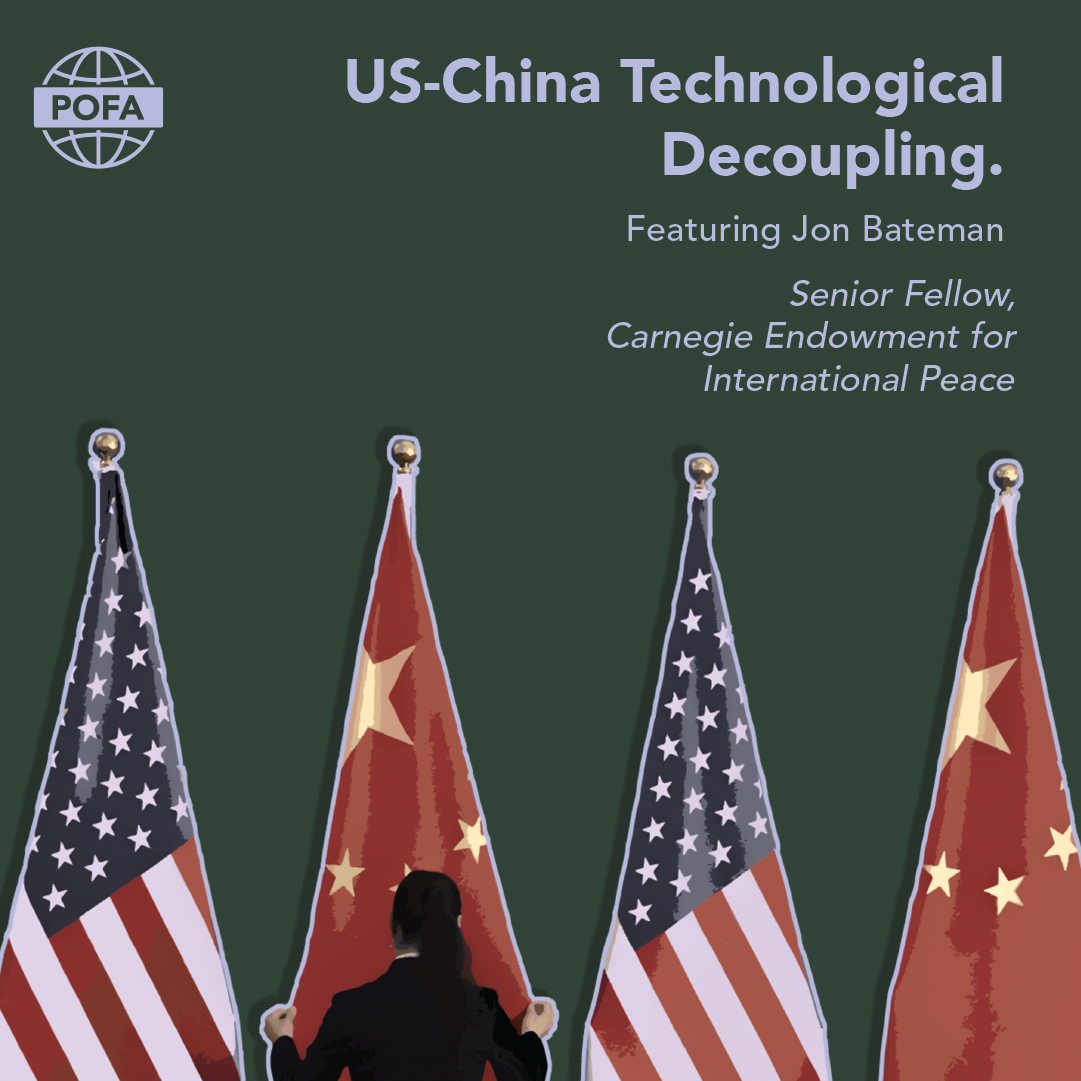The Great Decoupling And Its Effects On Technological Advancement

Table of Contents
Impact on Innovation and Research & Development (R&D):
The decoupling fosters parallel technological development, potentially accelerating innovation in certain sectors while also creating redundancies. This increased competition between the US and China fuels significant investment in R&D.
- Increased R&D investment: Both nations are pouring substantial resources into research and development, spurred by the need to maintain technological superiority. This heightened competition leads to a rapid expansion of R&D activities across various sectors.
- Development of distinct technological standards and approaches: The decoupling is leading to the creation of distinct technological standards and approaches, particularly in critical areas like 5G, artificial intelligence (AI), and semiconductor manufacturing. This divergence could result in incompatible systems and hinder interoperability in the long run.
- Potential for faster breakthroughs: Independent innovation pathways could lead to faster breakthroughs in certain areas. The competitive pressure encourages risk-taking and exploration of novel approaches that might not have been pursued under a collaborative model.
- Risk of duplicated efforts and decreased efficiency: Conversely, the parallel development of similar technologies represents a risk of duplicated efforts and inefficient allocation of resources. Significant investments may be wasted on redundant research and development projects.
For example, both the US and China are heavily investing in AI development, leading to parallel advancements but also potential redundancy in certain algorithms and applications. Similarly, the competition in semiconductor manufacturing has spurred massive investments in both countries, resulting in the development of competing chipmaking technologies.
Restructuring Global Supply Chains and Manufacturing:
The Great Decoupling necessitates a fundamental restructuring of global supply chains, pushing for diversification and regionalization. The reliance on single-source manufacturing, particularly in China, is being actively challenged.
- Friend-shoring and near-shoring strategies: Businesses are adopting "friend-shoring" and "near-shoring" strategies, relocating manufacturing facilities to countries with closer political and economic alignment or geographically closer locations to reduce reliance on China.
- Increased manufacturing costs: This relocation inevitably leads to increased manufacturing costs due to higher labor costs, transportation expenses, and the need to establish new infrastructure in alternative locations.
- Potential for increased resilience against disruptions: Diversified supply chains offer increased resilience against geopolitical shocks and disruptions like pandemics or trade wars. However, this increased resilience comes at the cost of potentially higher costs.
- The rise of regional technological hubs and clusters: The decoupling is leading to the rise of regional technological hubs and clusters, fostering localized innovation and economic growth. This could empower smaller countries to become key players in specific technology sectors.
The impact on smaller countries heavily reliant on a single major market, like China, is significant. They face pressure to diversify their trading partners and adapt to the changing global economic landscape.
Geopolitical Implications and the Rise of Technological Nationalism:
The Great Decoupling intensifies geopolitical tensions and fuels technological nationalism, significantly impacting the global technology landscape.
- Increased government intervention in technological development and regulation: Governments are increasingly intervening in technological development and regulation, prioritizing national interests and security concerns. This often includes subsidies, research grants and protectionist measures.
- Export controls and restrictions on technology transfer: Export controls and restrictions on technology transfer have become more prevalent, limiting collaboration and creating barriers to accessing crucial technologies. This hinders innovation and economic growth on a global scale.
- Cybersecurity concerns and the potential for technological warfare: The decoupling has heightened cybersecurity concerns and raised the specter of technological warfare, with countries vying for control of critical technologies and digital infrastructure.
- The formation of competing technological blocs: The decoupling is driving the formation of competing technological blocs, potentially leading to a fragmented and less efficient global technological ecosystem.
This increased government control raises concerns about innovation stifled by bureaucratic processes and a potential slowdown in technological advancement due to reduced international collaboration.
The Future of Technological Collaboration:
Despite the decoupling, complete isolation is unlikely. Opportunities for collaboration may remain, particularly in areas of mutual benefit.
- Potential for limited cooperation in areas of mutual benefit: Collaboration might persist in areas like climate change research, where international cooperation is essential for addressing global challenges.
- The role of international organizations in fostering collaboration: International organizations will play a crucial role in fostering collaboration, setting standards, and promoting open communication.
- The importance of establishing clear rules and norms for technological cooperation in a decoupled world: The establishment of clear rules and norms for technological cooperation in this new environment is vital to manage competition and prevent conflicts.
The future likely involves a complex interplay of competition and cooperation, with selective collaboration in areas of mutual interest existing alongside intense rivalry in strategic sectors.
Conclusion:
The Great Decoupling presents a complex and evolving challenge for technological advancement. While it fosters parallel innovation and drives diversification of supply chains, it also introduces significant risks, including increased geopolitical tensions, higher costs, and potential inefficiencies. Understanding the multifaceted implications of the Great Decoupling is crucial for navigating this new technological landscape. By proactively addressing the challenges and harnessing the opportunities presented by this shift, we can better manage the effects of the Great Decoupling and ensure continued progress in technological innovation. To stay informed on this critical issue, continue researching the ongoing effects of the Great Decoupling on technological progress and its various facets.

Featured Posts
-
 Edmonton Oilers Los Angeles Kings Series Your Guide To Betting Odds
May 09, 2025
Edmonton Oilers Los Angeles Kings Series Your Guide To Betting Odds
May 09, 2025 -
 R4 5
May 09, 2025
R4 5
May 09, 2025 -
 100 Billion Loss Doesnt Stop Elon Musk Hurun Global Rich List 2025
May 09, 2025
100 Billion Loss Doesnt Stop Elon Musk Hurun Global Rich List 2025
May 09, 2025 -
 Davids Untapped Potential Its Impact On Morgans Vulnerability
May 09, 2025
Davids Untapped Potential Its Impact On Morgans Vulnerability
May 09, 2025 -
 A Hilarious Farce Catch The Show At St Albert Dinner Theatre
May 09, 2025
A Hilarious Farce Catch The Show At St Albert Dinner Theatre
May 09, 2025
